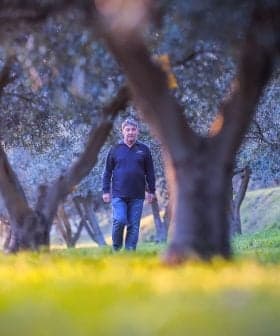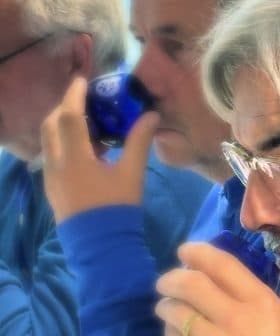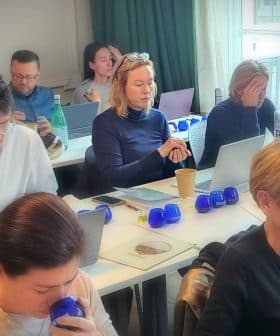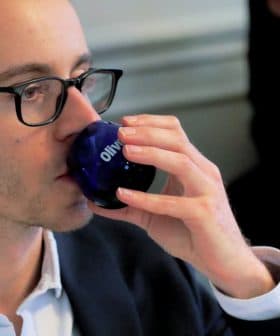27 Complete Sommelier Program in San Francisco
They join a growing network of olive oil professionals and enthusiasts after completing the six-day, two-tier course in the city's Marina District.
The article discusses the completion of the ninth edition of the Olive Oil Sommelier Certification Program in San Francisco, where attendees from nine countries learned about various olive oil-related topics. Participants, including professionals and enthusiasts, gained knowledge on olive oil quality, cultivation, production, and health benefits, with plans to apply this knowledge to improve their businesses or future olive oil production endeavors. The course was praised for its thoroughness, organization, and the opportunity it provided to taste award-winning olive oils and learn from experienced instructors.
Twenty-seven olive oil enthusiasts and professionals have completed the ninth edition of the six-day Olive Oil Sommelier Certification Program in San Francisco produced by the Olive Oil Times Education Lab.
Attendees from nine different countries across four continents gathered in San Francisco’s Marina District to learn about a wide array of olive oil-related topics, ranging from how to assess olive oil quality to the best olive cultivation, harvesting and production practices. Olive oil health benefits, chemistry and standards, among many other topics, were also covered.
“I was amazed at the amount of information conveyed to us in a relatively short amount of time,” Marci Weidemiller, an olive oil retailer and writer from Venice, Florida, told Olive Oil Times. “The instructors shared equally from their heads and their hearts, and that passion [was] very contagious.”
Having now been armed with this knowledge, we are sure to make better decisions.
Equipped with new knowledge of olive cultivation, oil production and chemistry, Weidemiller said she planned on expanding olive oil tastings at her retail store.
“Showing that we are willing to invest our time, energy and money into expanding our knowledge demonstrates our dedication to our staff, our customers and sets us apart from our competitors,” she said.
While Weidemiller is already in the process of writing a book about olive oil entitled Sacred Fruit, she said she was surprised to learn about the nuances of detecting defects in olive oils and what those defects mean about specific failures in the production process.
See Also:Olive Oil Education“[Learning about] the ability to pinpoint specific, often solvable problems by identifying defects [surprised me],” she said. “Rather than just being lumped together as ‘bad,’ there is a second-chance opportunity to learn, correct and hopefully improve future production.”
Patrik Rozina, a Croatian olive oil producer at Dimnik Estate, was among those in attendance who was looking for tips to help improve his future production.
After earning Gold and Silver Awards at the 2019 NYIOOC World Olive Oil Competition, Rozina told Olive Oil Times he wanted to learn more about global olive oil trends.
“The course was very well organized with a lot of professionals from the olive sector,” he said. “My favorite part was all of the technical presentations. I have a good knowledge of the olive oil production process, so the surprise for me was more on the tasting part, where they taught me a lot.”
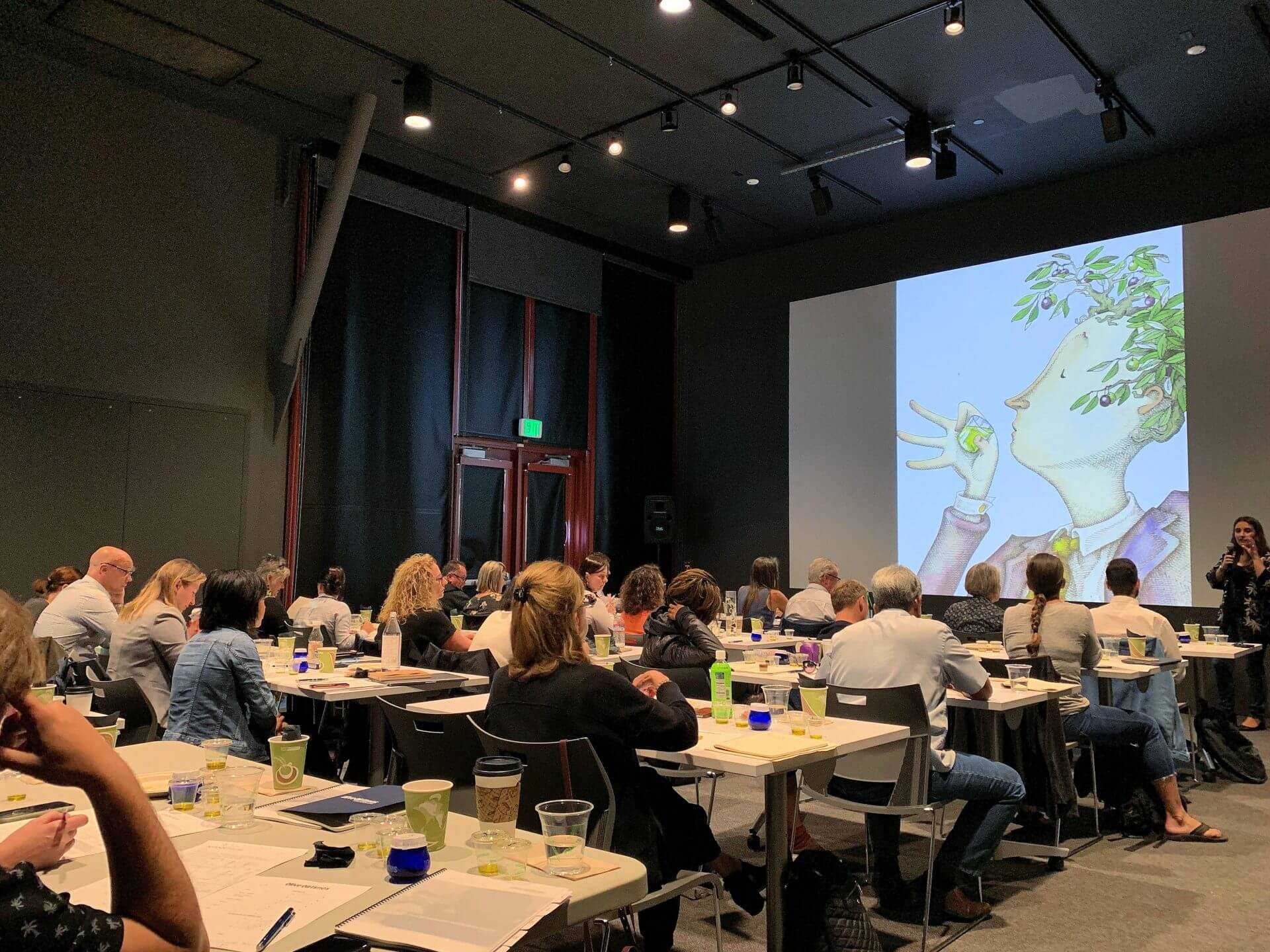
Rozina will take what he learned and apply it to the coming harvest in Croatia. Looking forward to NYIOOC 2020, Rozina said wants to get every possible advantage that he can.
Just like at the eight previous editions of the course, attendees came from a wide array of backgrounds and disciplines, each looking to learn something a bit different.
Xueqi Li, the assistant director of the UC Davis Olive Center, spends her days conducting research on olive oil quality and authenticity as well as coordinating short courses about olive cultivation, tasting and milling.
She told Olive Oil Times that she had long wanted to attend the course and looked forward to gaining a better understanding of what is happening in the olive oil world as well as meeting other olive oil professionals.
“I was impressed by how diverse peoples’ backgrounds were and how much we could learn from each other by just talking about olive oil,” she said. “My favorite parts were being able to taste so many award-winning olive oils from different regions, how thorough and resourceful the instructors were, and my classmates.”
Li spends a lot of time as a researcher analyzing the chemical profiles of the same olive oils varietals from both the Northern and Southern Hemispheres. She said that being able to taste them brings her understanding of the differences in their chemical profiles full circle.
“I understand how significantly different their chemical profiles could be sometimes,” she said. “However, being able to taste them side by side helps greatly in terms of understanding the whole picture of a specific variety.”
Tim Hughes, the foodservice sales director at Millpress Imports, also came to the course looking to learn more about the finer points of olive oil quality in order to share solid knowledge with clients.
“I took this course to give me a stronger sense of why this food is so important,” he told Olive Oil Times. “It was amazing to be able to listen and learn from such an accomplished panel of teachers and judges. They understand the business, the quality of the product needed, and how to make it from harvest to bottle. ”
Hughes said that he is a chef at heart and has worked as one for more than two decades. He will use what he learned in the course to continue educating his clients, many of whom are also chefs, about how they should be using and cooking with extra virgin olive oil.
“This will help me tremendously in working with owners and chefs to introduce them to a very high-quality product and educating them on how to purchase, store and use extra virgin olive oil,” he said.
“What surprised me was how delicate the process is from harvest to pantry,” he added. “The olive is such a complex fruit and if it is not taken care of it can fall apart very quickly leaving a potential crop in jeopardy.”
While many attendees of the course were veterans in the field of olive oil production, retailing or research, Yiannis Assimakopoulos came to the course to get his olive oil career started.
“For the past few years, I have been acquiring land in the Greek countryside with the aim of creating a farming estate for our family and future generations,” he told Olive Oil Times. “The olive oil sommelier certification course was the ideal choice as it extensively covered topics such as olive oil quality and standards, farming and harvest best practices, chemistry and defects, advance milling and recent innovations.”
Assimakopoulos added that he was impressed with the depth, passion and organization of the course. He plans to apply all that he learned to start a family tradition of olive oil production — one that he hopes will bear fruit.
“Having now been armed with this knowledge, we are sure to make better decisions when proceeding with our family’s dream of our olive estate,” he said.
The next Olive Oil Sommelier Certification Course will be in London. Registration is open through the Olive Oil Times Education Lab website.


